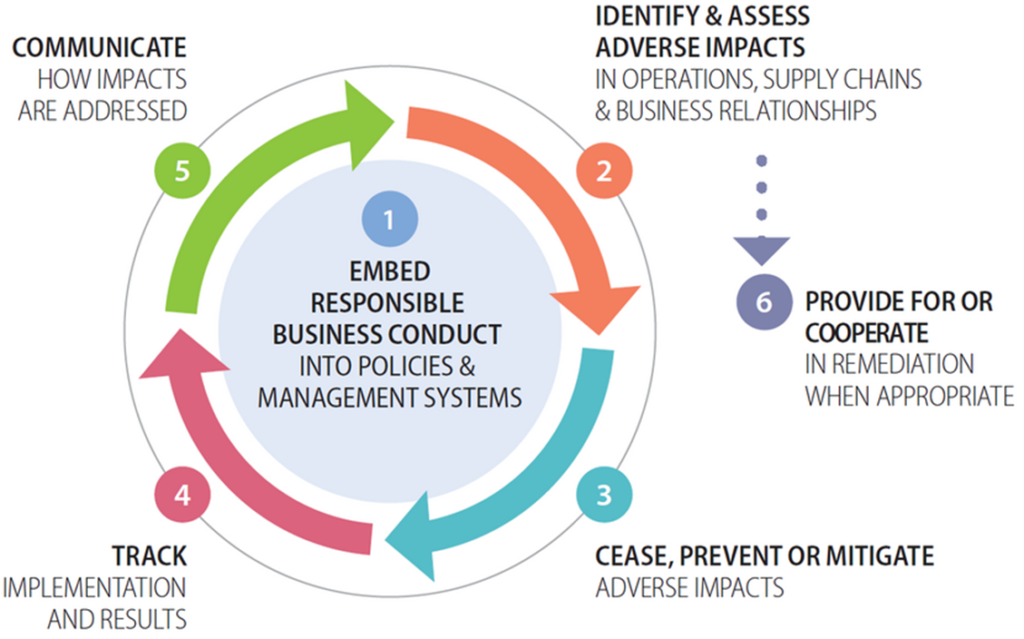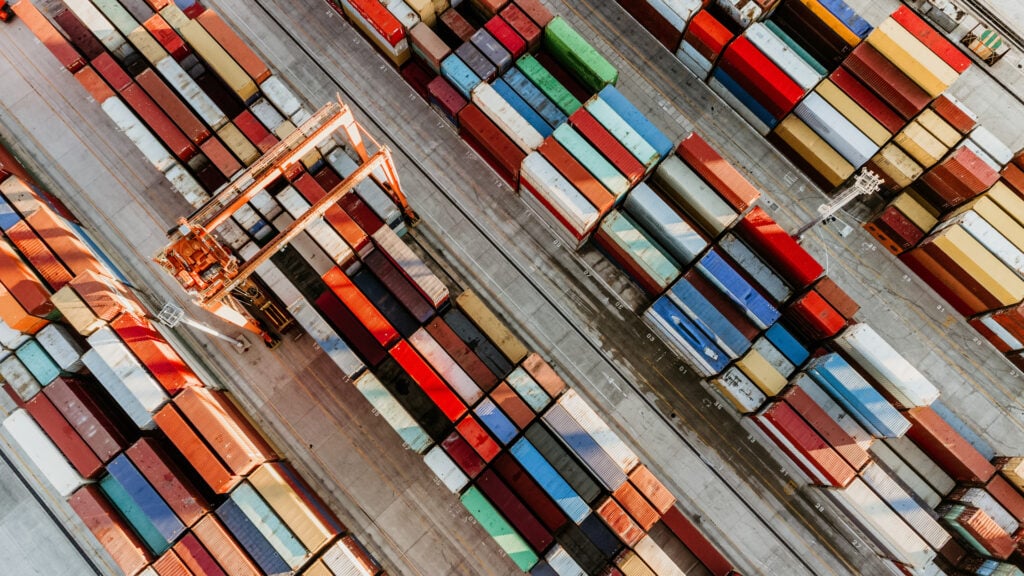How to implement human rights due diligence in your supply chain
With millions of people exploited in global supply chains and increasing regulatory pressures, implementing effective human rights due diligence (HRDD) has become essential for responsible businesses. This guide walks you through practical steps to identify and address human rights impacts in your supply chains, helping you protect people while meeting emerging regulatory requirements.
Understanding human rights due diligence
Human rights due diligence is a proactive process defined in the United Nations Guiding Principles on Business and Human Rights. Unlike traditional compliance approaches, HRDD requires businesses to identify and address potential or actual human rights impacts connected to their operations, products, and business relationships.
New legislation like the EU Corporate Sustainability Due Diligence Directive, German Supply Chain Act (LkSG), and US Uyghur Forced Labor Prevention Act (UFLPA) are making HRDD a legal requirement. These regulations increasingly demand site-level visibility that headquarters data cannot satisfy.
The OECD Due Diligence Guidelines for Responsible Business Conduct provide a crucial international framework that many companies follow alongside the UN Guiding Principles. These Guidelines offer comprehensive, practical guidance on implementing effective due diligence processes across operations and supply chains. For companies unsure about which specific legislation applies to them, the OECD framework provides a robust foundation that aligns with most national and regional HRDD requirements, making it an essential point of reference for responsible businesses.
The OECD due diligence process consists of six stages:
1. Embed responsible business conduct into polities and management systems
2. Identify and assess adverse impacts in operations, supply chains and business relationships
3. Cease, prevent or mitigate adverse impacts
4. Track implementation and results
5. Communicate how impacts are addressed
6. Provide for or cooperate in remediation when appropriate.

[Source: OECD Guidelines]
This comprehensive framework aligns closely with the UN Guiding Principles while providing more detailed practical guidance for businesses looking to implement effective human rights due diligence processes.
Key challenges businesses face with HRDD
Limited supply chain visibility
Most companies have limited knowledge about suppliers beyond the first tier. As supply chains become more fragmented, conducting effective due diligence becomes increasingly difficult. While no company can achieve 100% visibility, systematic mapping helps progressively improve your understanding of supply networks.
Resource constraints
Companies must balance breadth versus depth in their due diligence efforts. With limited resources, it’s essential to focus on areas with the highest risk to people. This requires effective prioritisation strategies.
Traceability issues
The ability to trace goods throughout your supply chain is crucial for effective monitoring. Without proper traceability systems, companies struggle to verify where products originate from and under what conditions they were produced.
Stakeholder engagement barriers
Meaningful stakeholder engagement is critical but challenging to implement effectively. Many companies struggle to identify and engage with relevant stakeholders, particularly affected rightsholders in distant supply chains.
Regulatory uncertainty and evolving standards
With legislation still developing in many regions and interpretations of requirements evolving, many companies face uncertainty about exactly which standards to follow. The landscape of HRDD requirements differs across jurisdictions and continues to change as new laws are proposed and implemented. Companies need flexible approaches that can adapt to this evolving regulatory environment while still maintaining robust due diligence processes.
Essential steps to implement effective HRDD
1. Create a strong foundation
Begin by embedding responsible business conduct into your organisation’s policies and management systems:
- Develop a comprehensive human rights policy
- Update your supplier code of conduct
- Review procurement policies
- Involve multiple business functions including legal, compliance, risk, HR, finance, and procurement
This cross-functional approach ensures you address human rights risks holistically rather than in silos.
2. Map your supply chain
Start with a pragmatic approach to supply chain mapping:
- Identify all first-tier suppliers and their locations
- Request information about sub-suppliers where possible
- Focus initially on high-risk materials, components, or regions
- Use a phased approach to progressively improve visibility
For complex supply chains, prioritise mapping areas where human rights risks are highest based on industry, location, and vulnerable populations.

3. Conduct risk assessment and prioritisation
Use the “funnel model” to focus your resources effectively:
- Begin with an overview of your entire supply base
- Conduct both inherent risk assessments (identifying potential risks based on geography, industry, and product type) and residual risk assessments (evaluating how existing controls mitigate these risks)
- Implement risk assessment during initial supplier onboarding and as part of ongoing contract management
- Leverage specialised tools like Sedex’s risk assessment platform to identify high-risk areas systematically
- Assess risks using multiple dimensions:
- Spend-based prioritisation
- Geographic risk factors
- Industry-specific concerns
- Vulnerability of affected people
- Double materiality (impact on both business and people)
This balanced approach ensures resources are allocated to address the most severe risks first.
4. Engage suppliers meaningfully
Human rights due diligence relies on effective supplier engagement:
- Move beyond compliance-focused approaches to collaborative problem-solving
- Understand how your own purchasing practices may affect supplier behaviour. For example:
- Short lead times can force suppliers to implement excessive overtime
- Demanding low costs might prevent suppliers from paying living wages
- Frequent design changes can create production pressures
- Last-minute orders can disrupt planned production schedules
- Unrealistic delivery expectations can lead to subcontracting to unvetted facilities
- Verify supplier information through spot checks and audits
- Provide capacity building and support to help suppliers improve
- Create incentives for suppliers who implement effective HRDD
The most successful companies see suppliers as partners in addressing human rights challenges.
5. Implement mitigation strategies
Once risks are identified, integrate findings into relevant business processes:
- Update procurement practices
- Revise supplier selection criteria
- Amend contract terms to include human rights requirements
- Develop targeted action plans for high-risk areas
- Establish human rights KPIs
Effective mitigation often requires combining approaches: worker engagement, grievance mechanisms, supplier development, and responsible purchasing practices.
6. Establish remediation processes
When human rights violations occur, providing access to remedy is essential:
- Establish or participate in effective operational grievance mechanisms
- Develop response plans for severe human rights issues
- Protect workers from reprisals when issues are reported
- Work collaboratively with other stakeholders on systemic issues
7. Monitor, report, and improve continuously
Human rights due diligence is an ongoing process requiring continuous improvement:
- Track implementation through robust monitoring systems
- Collect both quantitative and qualitative data
- Gather feedback from affected stakeholders
- Report transparently on progress and challenges
- Regularly review and update your approach

How Sedex helps simplify human rights due diligence
Implementing effective HRDD can seem overwhelming, but the right tools and approach make it manageable. Sedex’s platform helps businesses of all sizes implement human rights due diligence through a practical, step-by-step approach:
For risk mapping and identification: Our risk assessment tools help you evaluate supplier risks by country, sector, sub-sector and activity. Incorporating specific risk indicators for key issues such as deforestation, child labour and forced labour, allowing for more targeted prioritisation and focus on the most salient human rights risks.
For data collection and assessment: Our desktop questionnaires enable suppliers to provide critical social and environmental data at the site level, while our data-sharing platform improves transparency across supply chain tiers.
For verification and improvement: SMETA, the world’s most widely used ethical audit methodology, provides standardised verification, while our reporting tools create clear audit trails for stakeholders and regulators.
Personalised support: For businesses seeking personalised support, our consulting team offers tailored solutions to help you build internal capabilities with tailored recommendations on HRDD frameworks, supplier engagement, and leverage Sedex tools.
Whether you’re an enterprise managing complex global supply chains or a growing business working to meet customer and legislative requirements, Sedex provides the tools and expertise to implement effective human rights due diligence.
Next steps in your HRDD journey
Human rights due diligence is a journey, not a destination. To get started:
1. Assess your current approach and identify gaps against external requirements, including:
- Applicable legislation in your operating regions
- Customer and investor expectations
- International frameworks like the UN Guiding Principles and OECD Guidelines
- Industry standards and best practices
2. Prioritise high-risk areas for immediate action
3. Enhance your supplier engagement strategies
4. Implement tools that provide site-level visibility
5. Build a culture of continuous improvement
By taking a systematic approach to human rights due diligence, you can protect people in your value chain while strengthening your business for the future.
Ready to strengthen your human rights due diligence?
Our team are ready to help you build a more ethical, transparent supply chain. Whether you’re just starting your journey or looking to enhance your existing approach, we can provide the guidance, tools, and support you need.
Contact our team today to discuss your specific challenges and discover how Sedex can help simplify your human rights due diligence process.



